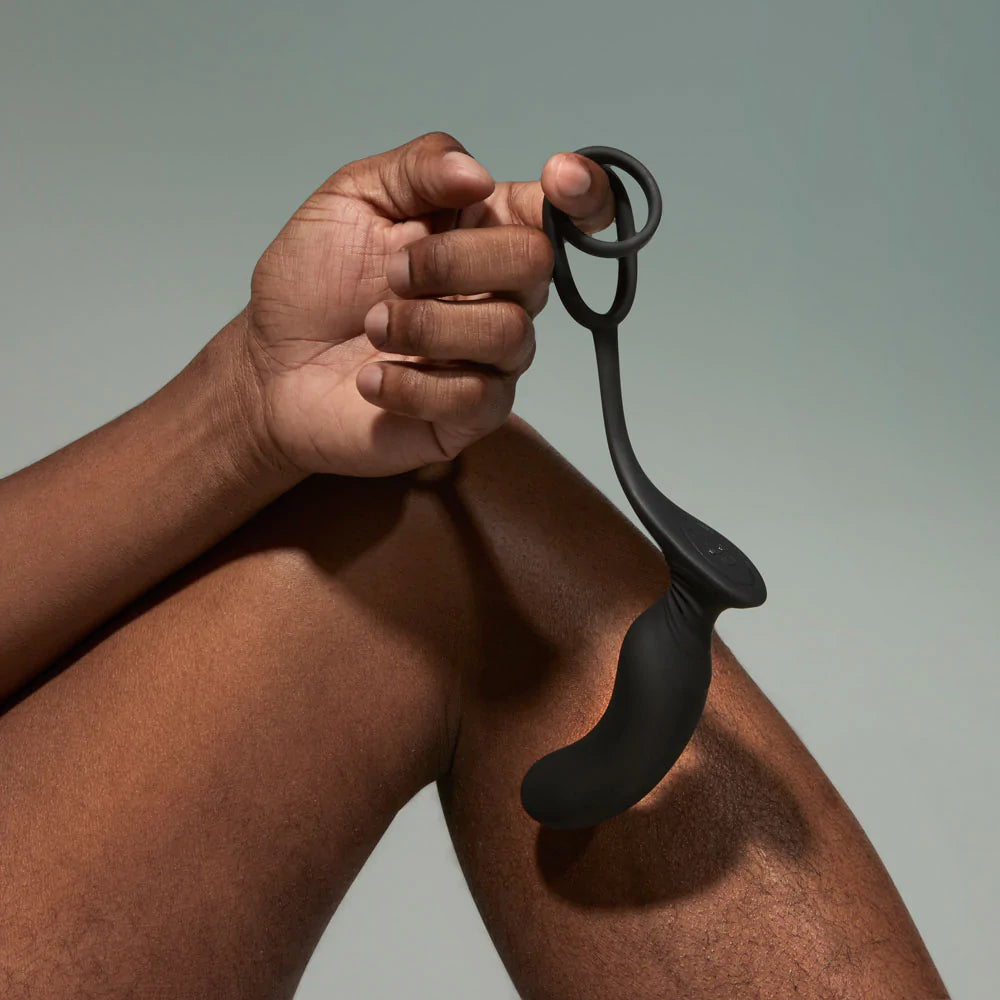Get our Beginner's Guide to Prostate Massage and 15% off your order.

When Should Men Get a Prostate Exam?
You may have heard of prostate exams. You may be wondering what they are and when you should get prostate cancer screening tests, if at all. You might even be wondering what a prostate is? Never fear.
You’re in the right place for extensive information about prostate exams, including:
- What prostate screening tests are
- What a prostate is
- What a prostate exam is
- If you need to get a prostate exam
- How often exams are necessary
- What exams are you looking for
- If prostate exams hurt
- If prostate exams are awkward
- If women have prostates too
And possibly more! Buckle your seatbelt to learn all you need about those nifty prostate exams and the best ways to keep your prostate health in check.
What Is a Prostate?

The prostate is a walnut-sized gland located below the bladder and in front of the rectum. It’s present in all individuals assigned male at birth. The purpose of the prostate is the production of prostate fluid, which is one of the main ingredients of semen.
Prostate fluid also keeps the urethra clean. The prostate contracts during orgasm and can be stimulated during sex via anal penetration or prostate massage.
Prostates and Sexual Fun

Prostate stimulation can be very pleasurable sexually. It is most easily accessed by anal penetration, which can take place with a finger, penis, buttplug, dildo, vibrator, vibrating prostate massagers, or any penetrating object.
The prostate can be found by inserting your fingers about two inches into the anus and stroking upward toward the stomach, using a “come hither” motion. It usually feels like a small, dense round gland.
Prostate stimulation can add to the pleasure and intensity of other acts or can be the stimulation that leads you to orgasm alone. Contrary to common misconceptions, prostate stimulation is not just for gay men but any person with a prostate. Anyone with a prostate can enjoy getting it tickled.
What Is a Prostate Exam?

A prostate exam is a medical screening to look for prostate cancer, a condition that can affect men typically of middle age or older. A prostate exam usually involves a PSA blood test and a digital rectal exam. Suppose you don’t know what the heck that means; don’t fret. We’re here to break it down for you.
PSA is a “prostate-specific antigen” produced by the prostate. However, high levels in the blood can indicate potential prostate cancer or other abnormalities (Side note: those assigned females at birth also have PSA in their blood, but more on that later).
Raised levels of PSA in the blood don’t immediately mean cancer is present, but they do indicate the need for further testing.
When it comes to the digital rectal exam, a healthcare provider inserts a gloved finger into the patient’s anus to feel the edges and surface of their prostate for any abnormalities, like lumps, which can then turn out to be either benign or malignant.
Do You Need a Prostate Exam?
You may be wondering by now: am I in need of a prostate exam ASAP? According to the American Cancer Society, most individuals assigned male at birth with average risk are advised to have their first prostate exam by age 50.
At the same time, the American Urologic Association (AUA) recommends routine exams for males between the ages of 55 to 69.
However, certain risk factors can increase the odds, which is why early detection of prostate cancer is so important. African American men are at increased risk of prostate cancer, as well as men with a family history of prostate cancer. These high-risk groups are advised to have their first PSA test by age 40.
The frequency with which you return for future screenings depends on the levels of PSA in your blood. If your levels are normal, it’s a good idea to get screened roughly every two years.
However, if your PSA levels are above average, which can put you at a higher risk, it can be wise to get an annual screening. Ask your doctor what they recommend for you at your initial exam.
Exam Jitters…
It’s natural to be nervous about your first prostate exam. After all, it’s not every day a medical professional puts their finger in your butt. But it is an essential part of taking care of yourself. Nerves and embarrassment are understandable, especially if you don’t have any experience with anal penetration. Maybe you’re worried about discomfort or awkwardness.
Remind yourself that this is their job, not their first rodeo, even if it is yours. Letting your doctor know you are nervous can ease some of the tension. They’ll talk you through what they are doing and ensure you’re comfortable.
After you’re familiar with the screening's ins and outs (get it?), it will make it much easier to come back with regularity.
There’s not much you need to do to prepare for a prostate exam. Be sure to let your doctor know if you have any conditions that could add discomfort to the process, including hemorrhoids, anal fissures, or anal tears.
Additionally, your doctor might ask you to abstain from sex for 48 hours before the exam. This is because ejaculation can temporarily raise an individual's PSA levels, affecting their blood test results.
But remember, there is no need to change bathroom habits or poop before your prostate exam, so don’t worry about that.
Do Cisgender Females Need Prostate Exams?

You may be wondering if those assigned females at birth also have prostates or require prostate exams. Technically, women don’t have the same prostate gland men do, but they have their own version, known as the Skene glands or the “female prostate.”
The Skene glands keep the urethral opening clean and also produce PSA. Unfortunately, they can also experience cancerous growths, just like the male prostate. That’s why it’s a good idea for women to get screened regularly for various reproductive cancers.
Pap smears and MRIs are how women get screened for cancers or other afflictions affecting their reproductive system, including abnormal growths on Skene glands. It’s a good practice for women to get screened annually, as they are typically at risk for more conditions than men. With more bodily hardware comes great responsibility.
Takeaway
Whew, that’s a lot of information, and health risks can be a heavy topic. Keep in mind that the prostate is a gland that has the potential to add wonderful, exciting pleasure to your sex life, as well as keep your body running smoothly.
It’s a magical little thing that we should all be thankful for. The same goes for the ladies’ skene glands. We quickly take these delicate parts of our intricate systems for granted.
That’s why taking care of your good old body is essential, and checking in with your doctor often. Know the signs of prostate cancer and make a follow-up visit to a urologist a regular event. They’re there to help keep you healthy and to treat anything that might come up. Don’t be afraid to ask them various questions while you’re there to help put your mind at ease.
You only have one body, so prioritizing your health and wellness is important. Making your physical and mental health a priority can also increase confidence and motivation, just in case you need another incentive. We promise it’s worth it.
Sources:
Prostate Exam: Age, Procedure, What To Expect & Results | Cleveland Clinic
How Often Do I Need a Prostate Exam? | Charlotte Men's Health











